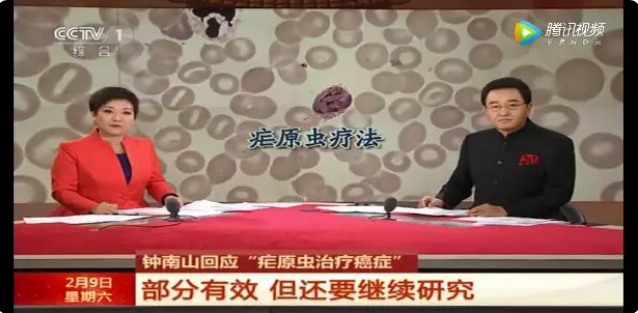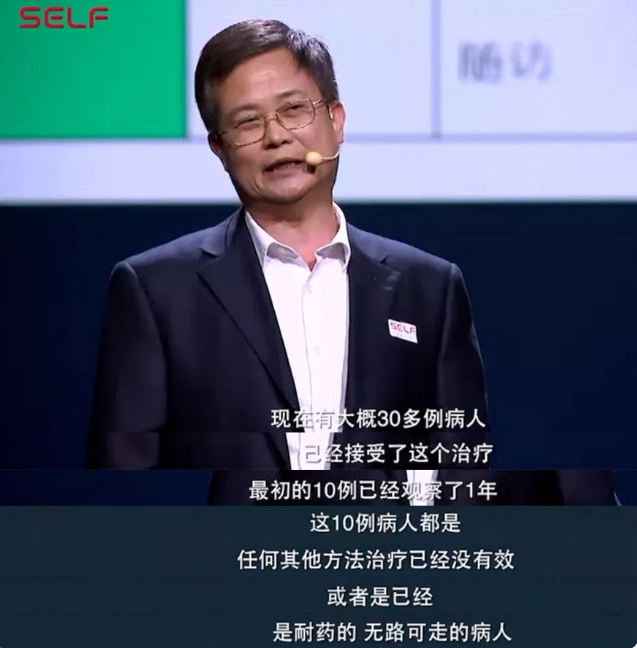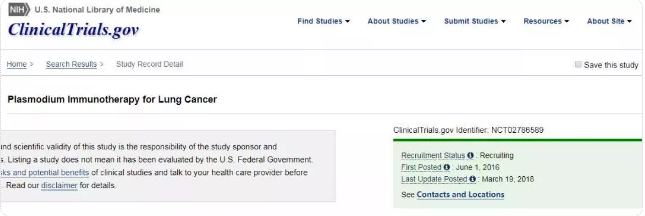Some time ago, a report was widely circulated among WeChat friends and chat groups:
Chinese Scientists Cure Advanced Cancer with Plasmodium!

Words such as malaria’s [wonderful] cure for cancer and the breakthrough of Chinese scientists inevitably arouse readers’ curiosity and national pride.
For cancer patients and their families, the statement of “curing advanced cancer” has aroused great hope.
But calm down:
Is this article true?
What is going on in this research?
Can malaria infection really cure advanced cancer by attacking poison with poison?
We can clearly tell you first:
Two scholars from Chen Xiaoping and Zhong Nanshan and CCTV reported that the term “curing cancer” had not been used from beginning to end.

[Plasmodium Treats Cancer] The method is partially effective, but further exploration is still needed.
Because the current research is at an early stage and there are not enough experimental and observed data, it is too early to say for sure.
Some We Media hyped [Plasmodium can fight cancer], which is very irresponsible, and the statement of [cure] will be seriously misleading!
The results of the test cannot be reported indiscriminately.
At the end of 2018, Professor Chen Xiaoping introduced his team’s current research topic in a public speech-can Plasmodium become a new force in anti-cancer?
Since finding that the high incidence of malaria seems to be related to the reduction of tumor mortality, Professor Chen began to explore the possibility of using Plasmodium to treat cancer.
After infection, the patient’s immune system will be [activated] by Plasmodium, and these activated immune cells may kill tumor cells.
In his speech, Professor Chen said:
According to current clinical observation, 2 of the first 10 patients receiving [Plasmodium immunotherapy] may have been cured.

Pay attention to the word [may].
In the article mentioned at the beginning, this became [the immunological method of Plasmodium infection successfully cured advanced cancer].

To generalize and change concepts secretly.
In CCTV’s report, the wording is objective and rigorous. Academician Zhong Nanshan also affirmed the enthusiasm of this research and said cautiously:

Scientific research achievements should not be reduced to eye-catching gimmicks.
The use of parasites to treat tumors may be a promising research direction.
However, key words such as [Chinese scientific research team] and [Tu Youyou] have given the news a thick [national emotion].
The expectation of curing advanced cancer makes many people look forward to it.
Some keen We Media people naturally smell the huge amount of reading and see the possibility of eye-catching.
[Scientists are studying the attraction of using Plasmodium to treat cancer] is naturally not as attractive as [Chinese cure cancer]. The public number’s pursuit of high reading volume is understandable, but only if it does not distort the facts.
What should I do if some patients really believe this statement, thus delaying the routine and proven effective treatment?
Both Chen Xiaoping and Zhong Nanshan said: Patients who have undergone various formal treatment methods and have not achieved good results are suitable to participate in this clinical trial. This treatment method is far from being popularized.

More Research Needs to Treat Tumors with Plasmodium
Li Zhizhong, Ph.D. In cancer biology from Duke University, believes that there are still many core issues to be solved.
For example:
- The side effect of this therapy is what? Can you control it? What is the objective efficiency? The 10 cases in the speech are too few. Will the results of large-scale clinical trials be how? The detailed mechanism of Plasmodium causing tumor disappearance is what? Is it the what biological medium produced after Plasmodium infection that plays a role? … …
They can also be found on the Internet in three clinical trials related to [Plasmodium Therapy for Tumors], all in Phase 1 or Phase 2:

In other words, the current evidence of Plasmodium cancer treatment is not sufficient and conclusive, and further exploration is needed.
Strictly speaking, the safety and effectiveness of the [Plasmodium for Tumor] trial are uncertain until clinical research papers are published and all data are made public.
Under such circumstances, some We Media people will shout the following words for the purpose of how?

Finally
For patients whose standard treatment has failed, Plasmodium therapy can be understood as one of the options, but expectations need to be lowered.
For the vast majority of cancer patients, at least for now, this therapy should definitely not be the first choice for treatment.
Because false reports bring unreasonable expectations to patients and their families, thus affecting the treatment decision and delaying the illness, this is very inappropriate!
It is hoped that the research on [Plasmodium to treat tumors] will achieve the expected good results.
As new media workers, we should always remind ourselves:
What patients really need is to cure the disease in a practical way, not to sell false news of the hope bubble.
